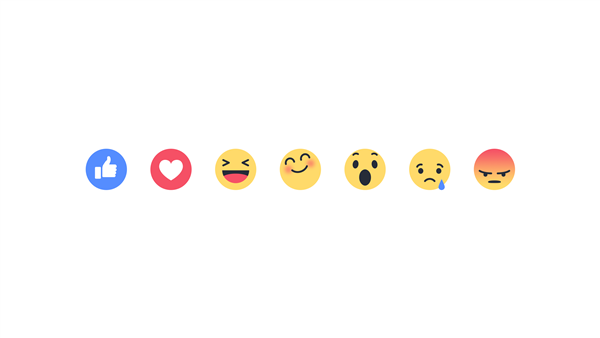
It won’t be long before Facebook’s 1.6 billion users have more ways to quickly express their feelings on the world’s largest social network.
After four months of testing outside the U.S., Facebook CEO Mark Zuckerberg says five new emotions will be added to the social network throughout the world “pretty soon.”
Zuckerberg didn’t give a more concrete timetable while discussing the new feature with analysts in a Wednesday conference call.

The additional options will expand Facebook beyond the renowned thumbs-up symbol that people click on to show they like a comment, photo or video posted on the social network.
The new reactions will include symbols for “angry,” ”sad,” ”wow,” ”haha,” ”yay” and “love.”
Facebook has been testing the different reactions in Chile, the Philippines, Portugal, Ireland, Spain, Japan and Colombia.
Earlier Wednesday, Facebook reported a 52 percent jump in quarterly revenue as it sold more ads targeted at a fast-growing number of mobile users.
Total revenue rose to $5.84 billion from $3.85 billion a year earlier, with ad revenue increasing 56.8 percent to $5.64 billion in the holiday shopping period, when spending on advertising typically spikes.
Excluding some items, the company earned 79 cents per share. Analysts on average had expected earnings of 68 cents per share and revenue of $5.37 billion, according to Thomson Reuters I/B/E/S.
Apart from focusing on mobile, Facebook has been ramping up spending on what it calls “big bets,” including virtual reality, artificial intelligence and drones to connect the remotest parts of the world to the Internet.
Zuckerberg, who returned from two months of paternity leave on Monday, has said virtual reality represents the next major computing platform.
In January, Facebook began taking orders for a consumer version of the Oculus Rift, a head-mounted virtual reality unit.
Facebook said it had 1.59 billion monthly active users as of Dec. 31, up 14 percent from the end of 2014. Of those, 1.44 billion used the service on mobile devices, an increase of 21 percent.
[Source:- nbcnews]

